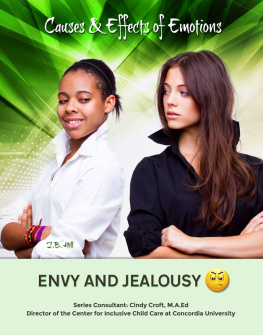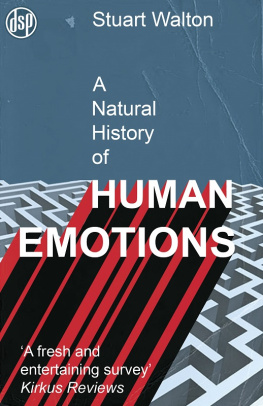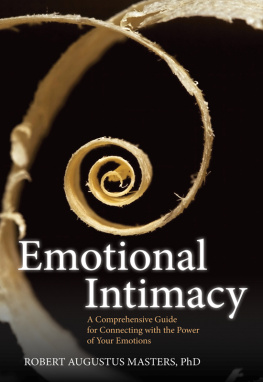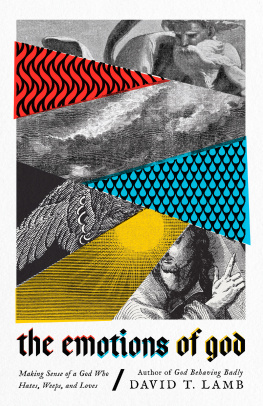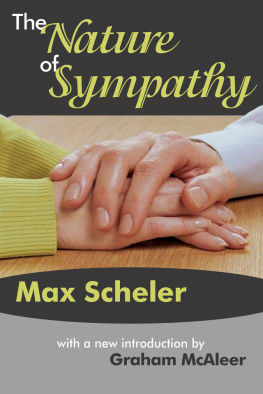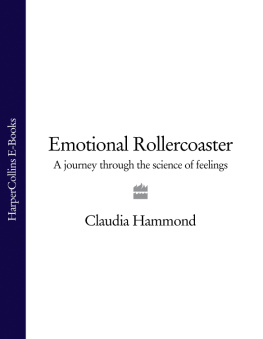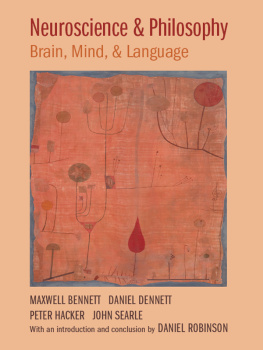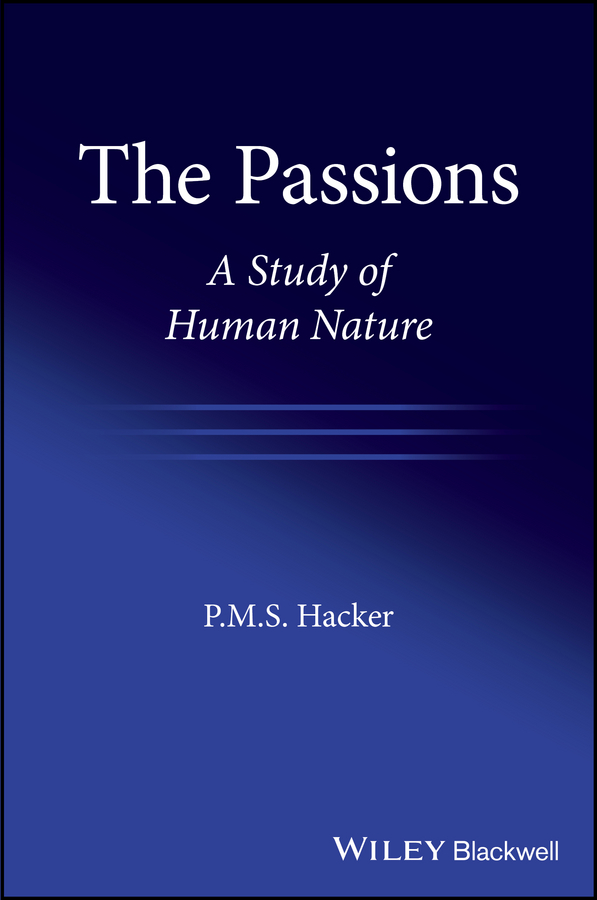
Table of Contents
List of Tables
- Chapter 01
- Chapter 04
- Chapter 06
- Chapter 08
- Chapter 10
- Chapter 11
List of Illustrations
- Chapter 01
- Chapter 02
- Chapter 04
- Chapter 05
- Chapter 06
- Chapter 07
- Chapter 08
- Chapter 09
- Chapter 10
- Chapter 11
- Chapter 12
Guide
Pages
The Passions:
A Study of Human Nature

P. M. S. Hacker
Fellow of St Johns College Oxford
This edition first published 2018
2018 John Wiley & Sons Ltd
All rights reserved. No part of this publication may be reproduced, stored in a retrieval system, or transmitted, in any form or by any means, electronic, mechanical, photocopying, recording or otherwise, except as permitted by law. Advice on how to obtain permission to reuse material from this title is available at http://www.wiley.com/go/permissions.
The right of P. M. S. Hacker to be identified as the author of this work has been asserted in accordance with law.
Registered Offices
John Wiley & Sons, Inc., 111 River Street, Hoboken, NJ 07030, USA
John Wiley & Sons Ltd, The Atrium, Southern Gate, Chichester, West Sussex, PO19 8SQ, UK
Editorial Office
9600 Garsington Road, Oxford, OX4 2DQ, UK
For details of our global editorial offices, customer services, and more information about Wiley products visit us at www.wiley.com.
Wiley also publishes its books in a variety of electronic formats and by printondemand. Some content that appears in standard print versions of this book may not be available in other formats.
Limit of Liability/Disclaimer of Warranty
While the publisher and authors have used their best efforts in preparing this work, they make no representations or warranties with respect to the accuracy or completeness of the contents of this work and specifically disclaim all warranties, including without limitation any implied warranties of merchantability or fitness for a particular purpose. No warranty may be created or extended by sales representatives, written sales materials or promotional statements for this work. The fact that an organization, website, or product is referred to in this work as a citation and/or potential source of further information does not mean that the publisher and authors endorse the information or services the organization, website, or product may provide or recommendations it may make. This work is sold with the understanding that the publisher is not engaged in rendering professional services. The advice and strategies contained herein may not be suitable for your situation. You should consult with a specialist where appropriate. Further, readers should be aware that websites listed in this work may have changed or disappeared between when this work was written and when it is read. Neither the publisher nor authors shall be liable for any loss of profit or any other commercial damages, including but not limited to special, incidental, consequential, or other damages.
Library of Congress CataloginginPublication Data
Names: Hacker, P. M. S. (Peter Michael Stephan), author.
Title: The passions : a study of human nature / by P. M. S. Hacker.
Description: Hoboken, NJ : John Wiley & Sons, 2017. | Includes bibliographical references and index. |
Identifiers: LCCN 2017030690 (print) | LCCN 2017036805 (ebook) | ISBN 9781118954744 (epub) | ISBN 9781118952436 (pdf) | ISBN 9781118951873 (cloth) | ISBN 9781119440468 (pbk.)
Subjects: LCSH: Emotions (Philosophy) | Philosophical anthropology.
Classification: LCC B815 (ebook) | LCC B815 .H33 2017 (print) | DDC 128/.37dc23
LC record available at https://lccn.loc.gov/2017030690
Cover design by Wiley
For
Robert and Betsy Feinberg
Preface
The subject of the human passions has excited the imagination and attracted the attention of philosophers since the preSocratics. That is hardly surprising, given the role that emotions play in our lives. We are all subject to joy and delight, to anger and fear, to sadness and grief. That is an intrinsic part of the human condition for we are purposive, selfconscious, goalseeking creatures and can recognize what frustrates or facilitates our purposes, and can respond affectively to and reflect upon the achievement of our goals and the maintenance or loss of what we value. We are mammals whose offspring require years to achieve biological maturity, and we are by nature social creatures with an innate capacity for bonding. So we are given to love, loyalty, and affection, and hence also subject to grief and sorrow. We express our emotions in what we do, how we act, and what we say, and we recognize the passions of our fellow human beings in their verbal expressions and behavioural manifestations of emotion. Having a natural propensity to sympathy and empathy, we can share our emotions with others and respond sympathetically to their feelings. Any study of human nature has to investigate the passions, to elucidate our concepts of emotions, and to describe our rich affective vocabulary. For the passions and emotions, collectively and severally, present manifold conceptual problems and provide fertile terrain for conceptual confusion among both philosophers and psychologists. Our problems are not merely intellectual. Human beings are often guided by their emotions, sometimes for good and sometimes for ill. They may be masters of their emotions or in bondage to them. Clarity about the concepts of the emotions is not only a contribution to the better understanding of human nature; it also facilitates deeper reflection upon our lives and the emotions that beset us. Accordingly this book is not aimed solely at philosophers, who are concerned with the conceptual problems examined here. It is also aimed at psychologists and cognitive neuroscientists, whose conceptual confusions and unclarities are subjected to detailed analysis here. And it is equally aimed at educated readers, who are interested in understanding the nature of the emotions, and in attaining a clearer understanding of the place of emotion in their own lives.
The emotions have an immediate and patent connection with (or with what is thought to be) the beneficial and the detrimental. For we fear and seek to avoid what we perceive as harmful to us or to those whom we cherish. We feel trepidation and anxiety, or anger, at the prospect of anything that threatens our welfare and endangers the good of those to whom we are attached. So the emotions are also perspicuously connected with what is, or is thought to be, good and bad. Our emotional pronenesses and liabilities are partly constitutive of our temperament and personality. Our ability to control our emotions, to keep their manifestations and their motivating force within the bounds of reason, is constitutive of our character as moral agents. So the investigation of the emotions is a fruitful prolegomenon to the philosophical study of morality. It provides a point of access to the elucidation of right and wrong, good and evil, virtue and vice, that skirts the morass of deontological and consequentialist approaches to ethics without neglecting the roles of duties and obligations, or the role of the consequences of our actions in our practical reasoning. Unlike deontology and consequentialism, such an approach highlights the contextbound and ideographic character of much normal moral experience and decision without obscuring the role of principle in the lives of people of integrity. So this book paves the way for a subsequent investigation into axiology and morality.
Next page


